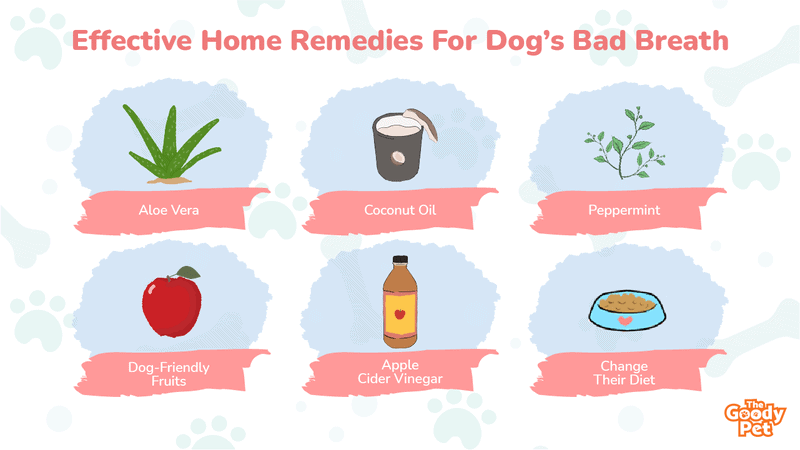As much as we love our furry friends, sometimes their breath can be downright stinky.
While there are a number of commercial dog dental care products available to help combat bad breath, there are also several home remedies that can be just as effective.
Let’s take a deeper look into 17 highly effective home remedies for bad dog breath – including dental water additives, coconut oil, and dog oral spray.
17. Water Additives
Dental water additives, like Buddy’s Best Dog Breath Freshener Water Additive, are special preparations meant to promote dental health and hygiene after the dog consumes freshwater. They often contain natural ingredients like mint, peppermint, aloe vera, and other herbs and plants with dental benefits.
You could also get formulations with enzymatic ingredients that not only help to mask bad mouth odor but also kill the germs responsible.
For these, simply follow the instructions of adding specific amounts of water to achieve the specified ratios, and you should start enjoying the benefits in no time.
16. Coconut Oil
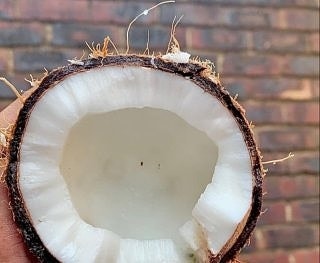
Coconut has a pleasant, mellow scent that is ideal for masking bad dog breath. It is particularly useful if the dog has mouth wounds or serious inflammation that could be aggravated by harsher alternatives like peppermint, lemon, or even apple cider vinegar.
Coconut oil also helps promote gut health which in turn ensures that the dog’s breath is not worsened by issues in the digestive system.
Just give your dog ¼ of a tablespoon if they are a small breed or ½ to one full tablespoon for larger pooches every day or two.
15. Manually Brush Your Dog’s Teeth
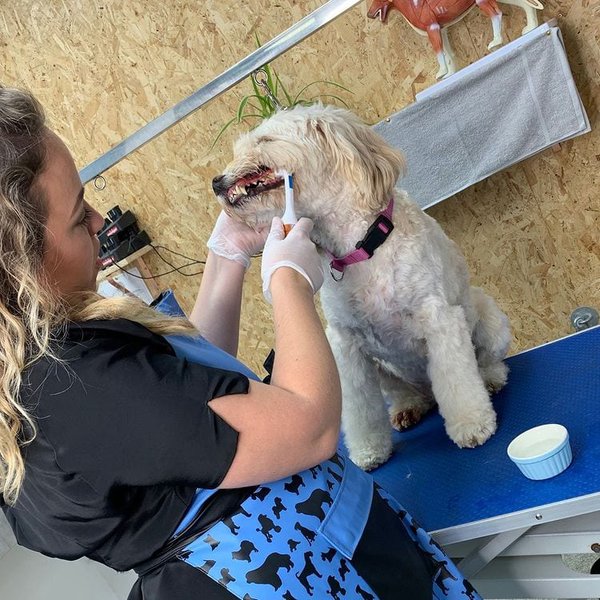
In cases where dental hygiene is the problem, manually brushing your dog’s teeth is the best way to deal with bad breath. You can effectively get rid of plaque and food particles that harbor the bacteria responsible for bad breath.
This, obviously, is not going to be comfortable for the dog. So get them used to it as early as possible.
You could even use special, hard treats to motivate them to let you finish.
14. Lemon

Lemon is nature’s answer to a lot of dog odor problems, including bad dog breath. It has a lot to offer you in your fight against your dog’s bad breath.
The most effective is adding some freshly squeezed lemon juice to their drinking water. This helps kill some germs in the mouth while also leaving the fragrant scent from the essential citrus oils.
13. Aloe Vera
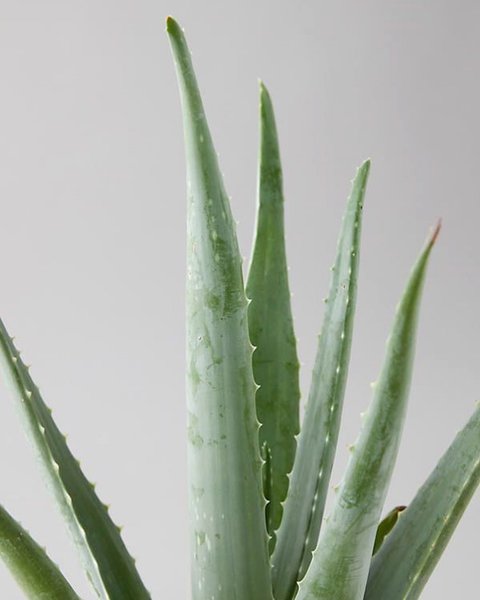
Aloe vera comes in particularly handy if the dog’s horrible breath is a result of dental infections. It could be infected cavities or even gum inflammation.
First off, raw aloe vera gel has analgesic and anti-inflammatory effects. These will reduce the dog’s discomfort greatly, which is an added benefit when fighting bad dog breath.
The gel is also antimicrobial, which will help kill some of the germs responsible for the odor.
12. Peppermint
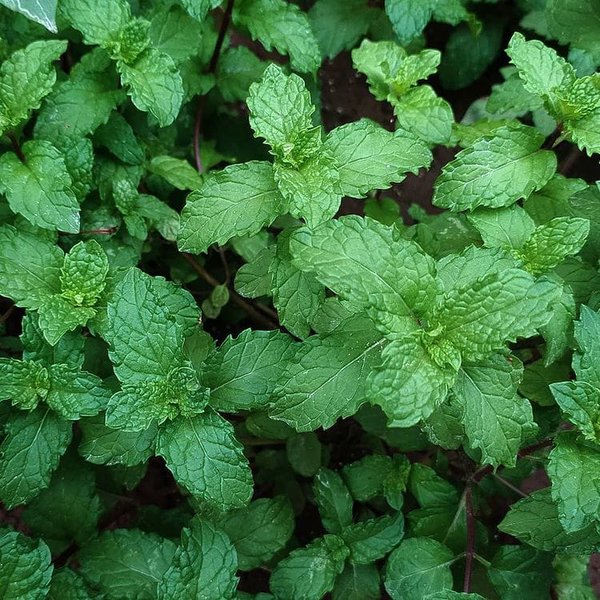
Peppermint is easily the most effective herb when it comes to dealing with dog oral odors. You just have to find ways to get your dog to chew on some. You could get peppermint-flavored treats or even infuse their water with the stuff.
This will give them a temporary boost of freshness. However, it is important to note that this is not a lasting solution and is literally just like spraying perfume on a bag of garbage. Therefore, it would be best combined with other mechanical methods.
11. Raw Vegetables
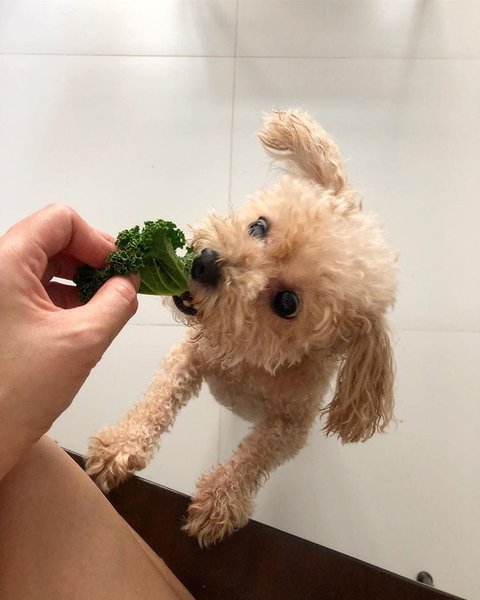
Raw vegetables serve several functions when it comes to eliminating bad dog breath. First off, they could act as mechanical cleaners to get rid of plaque and food particles stuck between the teeth. In this case, get crisp vegetables like carrots and cucumbers.
The high fiber content in vegetables also promotes gut health which is crucial when it comes to dealing with dog stinky breath issues as a result of digestive problems.
10. Dog-Friendly Fruits

Fruits also help a lot both mechanically and in terms of improved digestion. We recommend apple slices for these effects.
In addition to these benefits, fruits offer nice scents to mask the stink from bad breath. In this case, go for fragrant options like small amounts of fresh, raw pineapple as well as dog-friendly berries like blueberries.
These make for fantastic snacks and can be given to the dog after a major meal.
9. Get Them Chew Toys
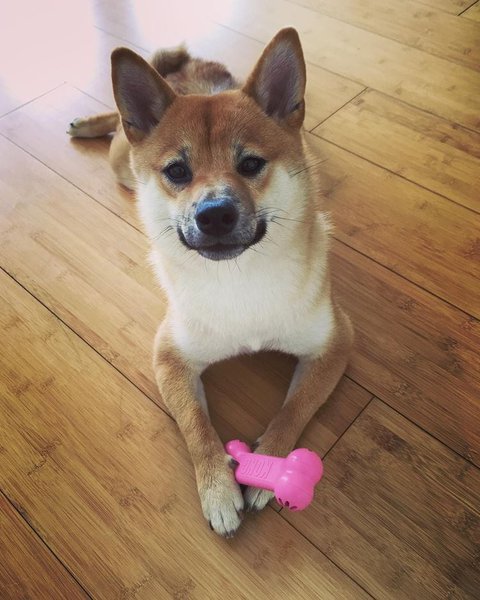
Dogs love to chew toys, whether it is to deal with the growing pains of new teeth sets or to let out their frustration. These toys also serve a purpose when it comes to maintaining dental hygiene and health, by extension.
As such, it will help a lot if you get your dog a set of chew toys to help with their stinky breath. Non-absorbent options like silicon and latex are the best in this case.
8. Try Hard, Chewy Treats
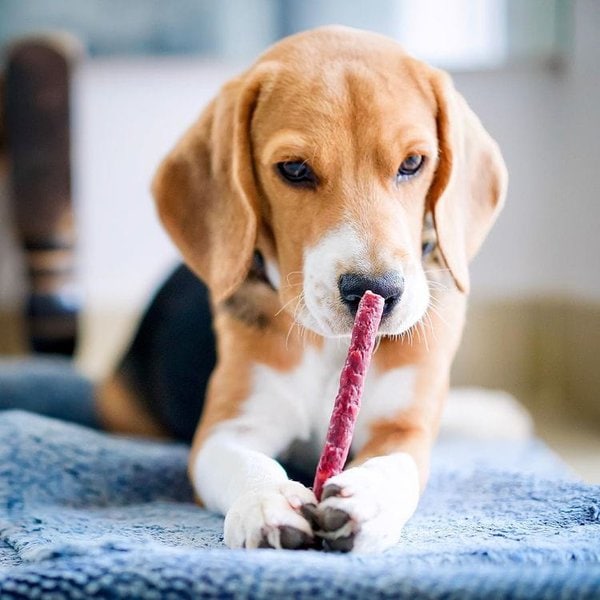
More often than not, dog owners gravitate towards soft chew treats. While your pooch may appreciate them, they sometimes contribute to bad breath issues.
This is because their consistency makes it easier to have them stuck between teeth or coating the teeth, hence resulting in plaque.
Therefore, you should consider throwing some hard treats into the mix to help with the breath issues whose abrasive properties result in the mechanical cleaning of teeth.
These include bully chew treats and dog bones. Just find something that your dog will like. And the best part is that in addition to being awesome treats, they last very long.
7. Give The Dog Lots Of Water
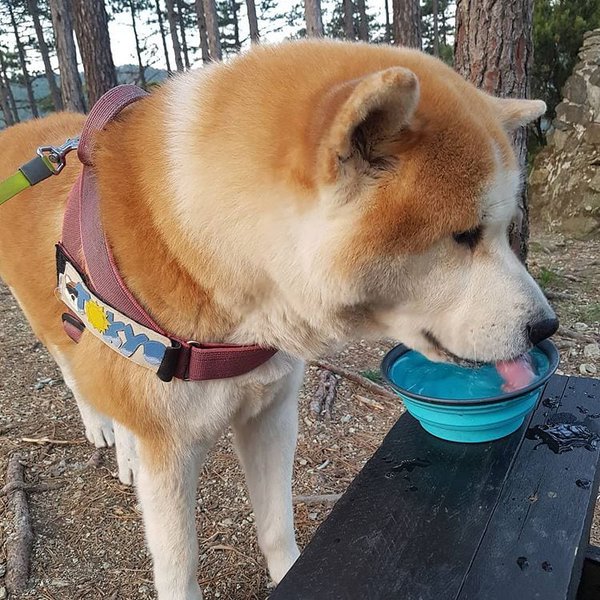
Proper hydration is super important when it comes to maintaining good oral hygiene.
You need to ensure that your pooch has a constant supply of freshwater. This will help wash down any food particles that could have later developed into plaque or caused cavities.
As earlier mentioned, you could also jazz things up by adding natural odor-eliminating herbs like peppermint or oils like citrus from lemons.
6. Change Their Diet
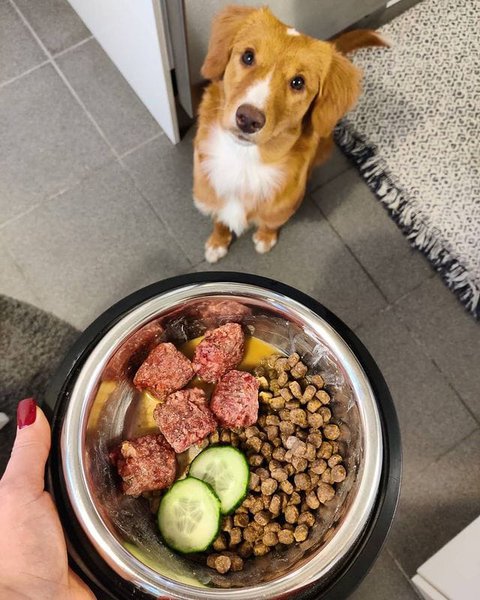
What your dog eats is probably the biggest determinant of its dental health. This is in terms of both texture and composition.
Hard dog food, in particular, offers the benefit of mechanical cleaning, with some brands designing their kibbles to help with the removal of plaque.
Organic food options, including raw dog food, on the other hand, help with dental odor control by promoting gut health in general.
So if your pooch has had a really stinky breath, it might be time for a diet change.
5. Apple Cider Vinegar
Apple cider vinegar is a fantastic additive to dog water to help deal with dental odors. It has antibacterial effects, which help deal with oral bacteria, including those causing cavities for fresher dog breath.
It also offers the additional benefit of reducing inflammation.
For this tip, just add about a teaspoon to a tablespoon of Bragg Organic Apple Cider Vinegar With the Mother to your dog’s drinking water. They may not like it at first, but the taste grows on them.
4. Parsley
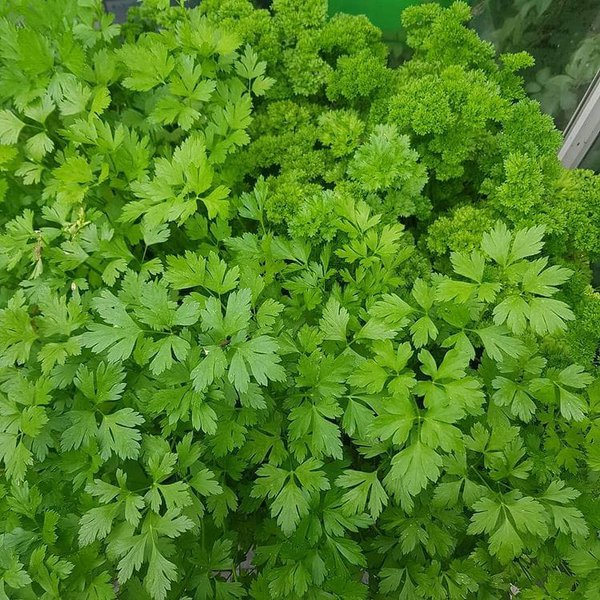
Parsley is a very pungent herb and is probably the last thing you would have thought of to help you deal with bad dog breath. However, it is easily one of the most powerful solutions to this funky issue.
There are many ways to administer the stuff to deal with your problem. The easiest is chopping up about a teaspoon’s worth of the stuff and adding it to your dog’s food, whether wet or dry. You could also blend the leaves to create a juice which you then add to their water bowl.
3. Dog Oral Spray
Oral spray preparations for dogs are very effective for dealing with halitosis due to both dental and non-dental issues. They mask the bad odor as you deal with the root of the problem.
Commercial preparations often contain fragrant natural ingredients like peppermint and rosemary. Non-herbal-based preparations, like Pet King Brands Oratene Brushless Oral Care Breath Freshener, are also available.
What probably is the best thing about these preparations is the fact that they are very easy for you. All you have to do is wait for your dog to open their mouth then you hit them with a spritz of the stuff.
2. Use Probiotic Supplements
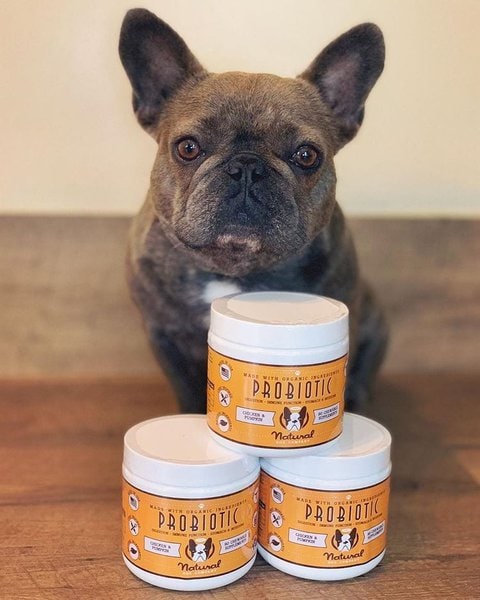
There is a very delicate system of good bacteria in the gut and in your dog’s mouth that help keep things healthy and functional. Imbalance, especially in the gut, often results in bad breath, even with good oral hygiene practices.
Probiotics come in very handy in this case by replenishing the natural reserves of the good bacteria. Supplements are the best way to go in this case, but you could give the dog some natural yogurt if they are not lactose intolerant.
1. Rule Out And Deal With Existing Health Issues
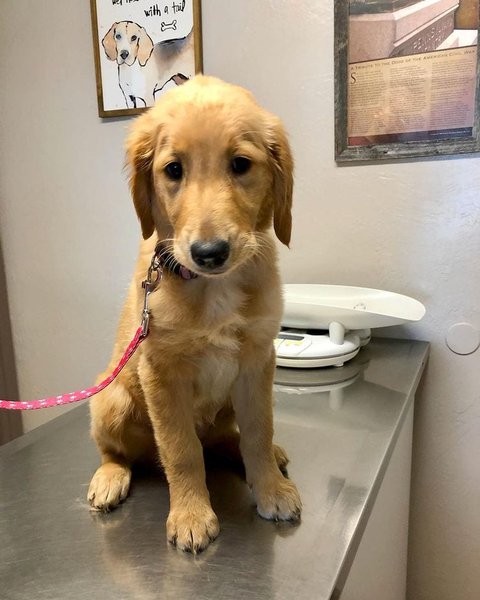
Most of the remedies we will cover in the coming points will be related to bad breath as a result of poor oral hygiene. However, this is not the only cause of bad breath in dogs.
Health issues like gut problems, diabetes, renal disease, and even liver failure could be the cause of bad breath. It is thus important to get your dog checked by a vet to rule these causes out or deal with them if they are present.
Related Questions
Why Does My Dog Breath Smell Like Sewage? Not all bad dog breath smells the same because of the different chemicals involved. If your dog’s breath smells like sewage, it could be due to health issues, such as kidney disease and diabetes. In this case, look for other symptoms, especially those to do with urinary frequency and general energy levels.
Is Bad Breath In Dogs A Sign Of Illness? Bad breath in dogs can either be a sign of illness or simply a result of poor oral hygiene. The illnesses are often dental, including cavities and gum infections. However, systemic issues in the liver, renal system, and metabolic system, could also be the cause of bad breath from your pooch.
Can Stomach Issues Cause Bad Breath In Dogs? Stomach issues and digestive problems, in general, are among the leading non-dental causes of bad breath in dogs. These include indigestion and gut obstruction, just to name a few. In some instances, it is fumes from the backed-up tract that make it back out. It could also be the regurgitation of food particles that causes all the issues.

